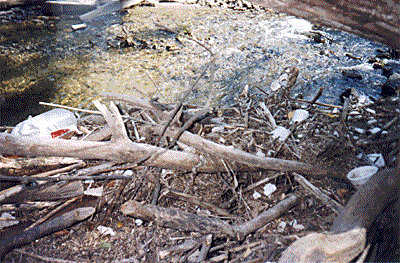All Nonfiction
- Bullying
- Books
- Academic
- Author Interviews
- Celebrity interviews
- College Articles
- College Essays
- Educator of the Year
- Heroes
- Interviews
- Memoir
- Personal Experience
- Sports
- Travel & Culture
All Opinions
- Bullying
- Current Events / Politics
- Discrimination
- Drugs / Alcohol / Smoking
- Entertainment / Celebrities
- Environment
- Love / Relationships
- Movies / Music / TV
- Pop Culture / Trends
- School / College
- Social Issues / Civics
- Spirituality / Religion
- Sports / Hobbies
All Hot Topics
- Bullying
- Community Service
- Environment
- Health
- Letters to the Editor
- Pride & Prejudice
- What Matters
- Back
Summer Guide
- Program Links
- Program Reviews
- Back
College Guide
- College Links
- College Reviews
- College Essays
- College Articles
- Back
Small Town in Montgomery County, Maryland Enacts Ban on Single-Use Plastic Straws
On a worldwide scale, approximately 8.8 million tons of plastic pollution flows into the ocean each year. Plastic is not biodegradable, and can last in the ecosystem for over 450 years. When the plastic starts to degrade, it turns into microplastics, which contaminate the world’s food and water supply. This increasing consumption of microplastics could have unknown health implications in the future. Single-use plastic straws are one of the top ten contributors to this annual plastic pollution. In a effort to reduce this profound environmental impact at the grassroots level, the Garrett Park town council in Montgomery County, Maryland passed an ordinance that banned single use plastic straws. In addition, plastic straw legislation has made it to the Maryland House of Delegates, with a new bill regulating restaurant distribution of plastic straws. However, Our Last Straw, a coalition against the use of plastic straws in the DMV, believes the bill in ineffective in lue of a total ban.
Garrett park was the first town to ban single-use plastic straws in Maryland. Starting March 3, 2019, business are not permitted to dispense single use plastic straws, plastic stirrers, or plastic splash sticks. This ordinance was proposed to the Garrett Park town council by Councilman Dan Simons, a successful restaurateur and environmental activist. Initially, the ordinance was met with little pushback, and after a full review by the council, it was passed in early 2019. All violators will face a $100 fine for the distribution of plastic straws and other single use plastic products for drinks. Two exceptions are plastic straw to accomodate a disability and beverages prepared outside that come with an attached straw. All straws distributed in Garrett park must be made of a biodegradable material, which acts as a viable, eco-friendly substitute to single use plastic. Some biodegradable materials the straws could be made of include paper, hay, and bamboo. The ban affects one restaurant, a nursery, and two event spaces.
“While Garrett Park is a small town, I think the straw ban here is meaningful...even small steps contribute in a relevant way to the aggregate,” Simons said.
Prior to the straw ban in Garrett Park, Charles County banned plastic straws in October of 2015. In Montgomery County, restrictions have been imposed on polystyrene containers due to the negative environmental impact that occurs when these containers become waste. Some municipalities in the county, like Rockville, have enacted full bans on these containers.
In January of 2019, House Bill #134 was proposed to the Maryland House of Delegates. If enacted, this bill would put statewide restrictions on plastic straw distribution in an effort to decrease overall consumption of single-use plastic straws. The proposal states:
“Prohibiting, beginning January 1, 2020, a restaurant from providing a single-use plastic straw to a customer dining in at the restaurant unless the customer requests a straw; and providing the Act does not apply to restaurant services provided at a drive-through window.”
This proposal was met with pushback from the House Economic Matters Committee, who filed an Unfavorable Report against the bill. In addition, Simons also testified before the Maryland House of Delegates and claimed the bill was created with good intentions, but not ideal in reducing single-use plastic straw pollution. The bill only required that restaurants distribute plastic straw per customer request, not for restaurants to remove plastic straw altogether.
“I’m thrilled the topic is on the radar at the State level. I do not believe HB134 goes far enough. I would much rather see the State of Maryland ban single-use plastic straws and provide a phase-in of 24 months allowing for education of businesses on substitutes, education of the public [to reduce] demand, and the supply chain to fully catch up to the demand for biodegradable straws.” said Simons in an interview.
In 2014, Simons and his non-profit organization against plastic pollution, Our Last Straw, played a crucial role in bringing to light the detrimental environmental impacts of plastic straw pollution in Washington D.C. That same year, D.C. legislature passed a full single-use plastic straw ban. However, little enforcement of the law led to a revised ban with tighter enforcement, effective July 1st, 2019.
Our Last Straw is a coalition of over 200 restaurants and businesses dedicated to environmentally conscious practices. Founded by Simons, the Our Last Straw aims to spread awareness on the negative environmental impacts of single use plastic and urge politicians to enact more environmentally conscious legislation.

Similar Articles
JOIN THE DISCUSSION
This article has 0 comments.
